Neurology Residency Program
Find out about the Neurology Residency Program from our residents and faculty.
Learn more about residencies and fellowships at the University of South Alabama and life on the Gulf Coast.
Program Director’s Welcome
Welcome and thank you for your interest in the neurology residency program here at the University of South Alabama! We are a four-year categorical program, with the PGY1 intern year guaranteed with each of our four residency positions matched each year. We are proud to have the opportunity to help you reach your career goals as a well-rounded neurologist. By the time you have completed training with our program, you will be ready to go directly into practice as a general neurologist or pursue the fellowship training of your choice. Many of our recent graduates have gone on to prestigious fellowship opportunities, but many have remained in the area and make up a significant proportion of the neurologists in our community.
We are very much a resident-centered program, and all of our faculty will be deeply invested in your residency training. We have a detailed curriculum with ample didactic time provided during your time with us. Our residents provide significant input each year regarding opportunities to enhance our program, and some examples include the recent addition of a night float call system and the implementation of neurology “boot camp” for incoming PGY2 residents at the end of the PGY1 year. We also encourage each of our residents to participate in academic pursuits including abstract presentation at local and national conferences, quality improvement projects, and manuscript publication. Each of our faculty members is excited to work with residents in pursuit of research opportunities. There is also ample opportunity to work with rotating medical students from the University of South Alabama College of Medicine.
We have a wide variety of subspecialties represented among our faculty including epilepsy, cerebrovascular disease, neuromuscular neurology, neuroimmunology and MS, movement disorders, and pediatric neurology. Our faculty members all see general neurology patients as well. Advanced programs include the Comprehensive Stroke Center with three interventional neurologists on staff, a dedicated neuro-ICU, deep brain stimulation evaluation and implantation, partnership with the National MS Society as a Partner in MS Care, and status as a Level 4 Epilepsy Center. All of the above provide a rich educational experience for our residents. USA Health and its clinical sites serve as a tertiary referral center for a diverse patient population along the gulf coast of Mississippi, Alabama, and the Florida panhandle.
I encourage you to browse our website for more details on the above, and we appreciate your consideration of our residency program as you pursue a career in neurology.
William A. Kilgo, M.D.
Neurology Residency Program Director
Director of Neuroimmunology and MS Clinic
Assistant Professor of Neurology
Our Goals
To train the finest neurologists for the future who have mastered:
- Clinical skills
- Comprehensive knowledge of scientific and clinical bases for neurological practice
- Ability to critically judge information and data
- Technical skills needed for their practice of neurology
- Teaching skills to improve the knowledge and clinical practice of their future communities
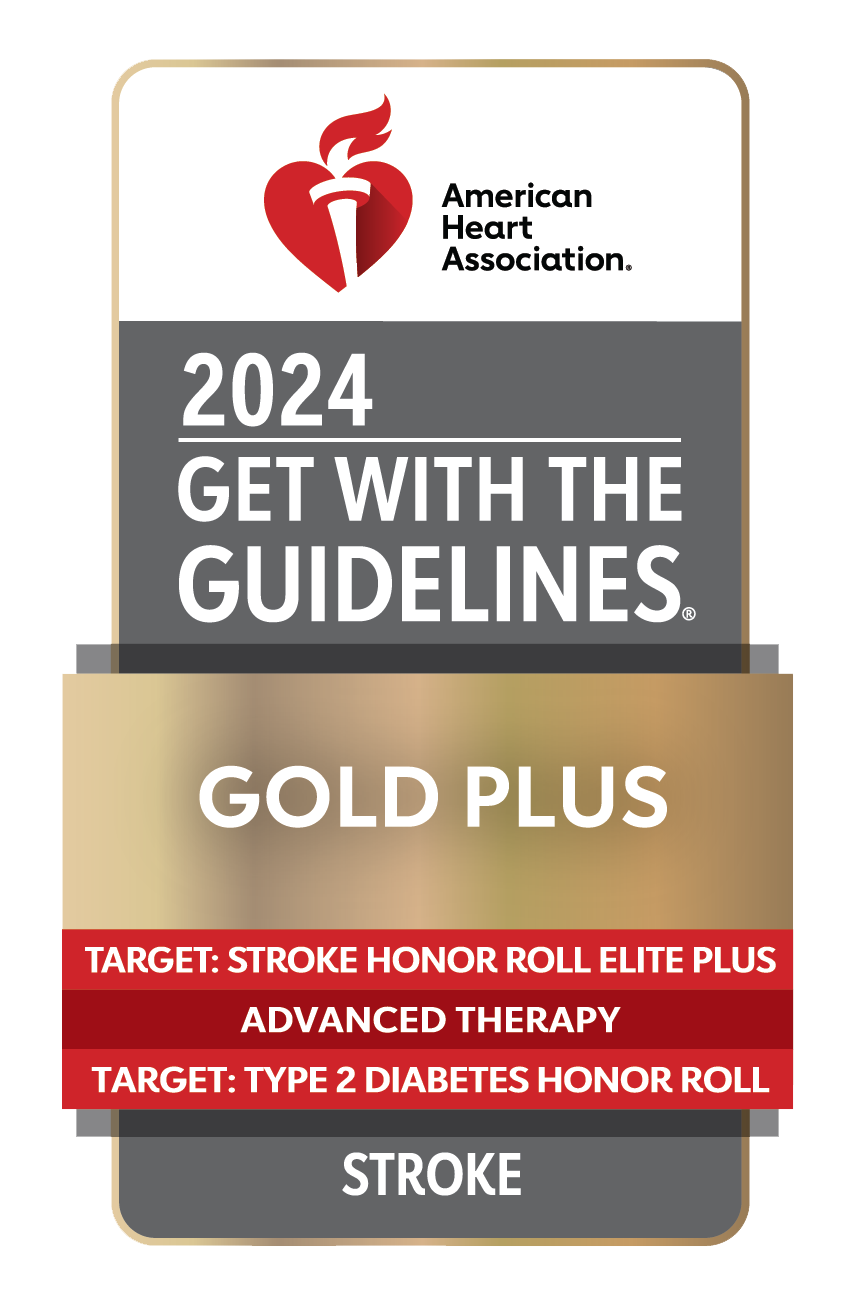
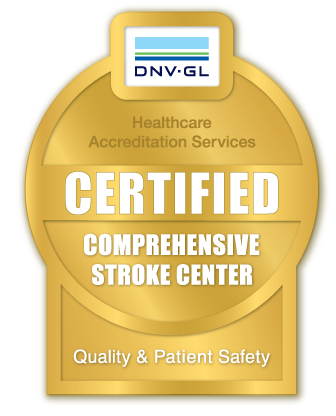
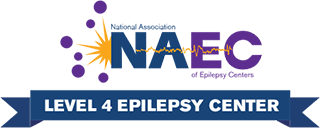
Program Aims
In accordance with our sponsoring institution’s mission to “help people lead longer, better lives,” the principal goal of the University of South Alabama Neurology Residency Program is to assure that our trainees acquire the professional knowledge, skills, and attitudes necessary to independently and competently practice General Neurology. In accordance with the Accreditation Council on Graduate Medical Education, our aim is to prove competency in the areas of Patient Care, Medical Knowledge, Systems-Based Practice, Practice-Based Learning and Improvement, Professionalism, and Interpersonal and Communication Skills.
- Residents will acquire the knowledge, skills, attitudes and behaviors necessary to provide patient care that is compassionate, appropriate and effective for the treatment of health problems and the promotion of health in a variety of roles within a health system, in a variety of healthcare settings and across a broad spectrum of neurological disorders.
- Residents will acquire competence in the assessment and management of outpatients and inpatients with neurological disorders across the lifespan, including those who require emergency and intensive care.
- Residents will acquire the knowledge of established and evolving biomedical, clinical, epidemiological and social behavioral sciences and the ability to apply this knowledge to patient care across a broad spectrum of clinical disorders.
- Residents will demonstrate competency in:
- Working effectively in various health care delivery settings and systems relevant to their clinical specialty
- Coordinating patient care across the health care continuum and beyond as relevant to their clinical specialty
- Advocating for quality patient care and optimal patient care systems
- Working in interprofessional teams to enhance patient safety and improve patient care quality
- Participating in identifying system errors and implementing potential systems solutions
- Incorporating considerations of value, cost awareness, delivery and payment, and risk-benefit analysis in patient and/or population-based care as appropriate
- Understanding health care finances and its impact on individual patients’ health decisions
- Residents will acquire the ability to investigate and evaluate their patient care practices, appraise and assimilate scientific evidence, and improve their patient care practices based on constant self-evaluation and life-long learning.
- Residents will acquire the ability to identify strengths, deficiencies, and limits in one’s knowledge and expertise, set learning and improvement goals, identify and perform appropriate learning activities, and use information technology and evidence based medicine to optimize learning and participate in the education of patients, families, students, residents, and other healthcare professionals.
- Residents will demonstrate a commitment to carrying out professional responsibilities and an adherence to ethical principles. Residents are expected to demonstrate compassion, integrity, and respect for others, a responsiveness to patient needs that supersedes self-interest, respect for patient privacy and autonomy, and accountability to patients, society and the profession, and sensitivity and responsiveness to a diverse patient population, including but not limited to diversity in gender, age, culture, race, religion, disabilities, and sexual orientation.
- Residents will demonstrate interpersonal and communication skills that result in the effective exchange of information and collaboration with patients, their families, and health professionals. Residents are expected to communicate effectively with patients, families, and the public across a broad range of socioeconomic and cultural backgrounds, communicate effectively with physicians, other health professionals, and health related agencies, work effectively as a member or leader of a health care team or other professional group, act in a consultative role to other physicians and health professionals, and maintain comprehensive, timely, and legible medical records.
Program Leadership
Dean K. Naritoku, M.D.
Professor and Chair of Neurology
William A. Kilgo M.D.
Neurology Residency Program Director
José Sanchez, M.D.
Neurology Residency Assistant Program Director
Leigh Rowell
Residency Program Coordinator
Four year categorical program with integrated internship
- Neurology residency accredited by ACGME
- PGY-1 year featuring three blocks of neurology, one block of psychiatry, and 9 blocks of internal medicine and its subspecialties
- ACGME accredited fellowship in clinical neurophysiology available
- Hands-on experience directly with attending physicians within the different subspecialties
- One-week bootcamp of neurology lectures between PGY-1 and PGY-2 year encompassing introductory topics in neurology
- Opportunity to attend and present at USA Neuroscience Symposium
Structured coursework
Formal coursework provides structured learning to residents in areas needed for board certification and clinical practice
- Core clinical neurology
- Neurophysiology
- Neuroanatomy
- Neuropharmacology
- Neuropathology
- Neuroradiology
Neurology procedures
Exposure to and training in various neurological procedures
- EEG
- EMG/NCS
- Carotid ultrasonography
- Autonomic studies
- Ocular coherence tomography (OCT)
- Sleep
- Vagus nerve stimulation
- Deep brain stimulation
- Botulinum toxin injection for migraine, focal spasticity, and other indications
Highly effective educational experience
- Exceptional board passage rate
- Excellent fellowship placement
- Neurology Boot Camp in June of PGY1 year
Mentoring
Residents are paired with faculty members in the PGY1 year. Mentors help the residents navigate residency and future career development. Residents meet with their mentor every six months for any advice or other concerns.
Clinical Curriculum
| PGY 1 | Number of Block(s) |
|---|---|
| Wards | 5 |
| Medicine ICU | 1 |
| Cardiology | 1 |
| Night float | 1 |
| Emergency Medicine | 1 |
| Neurology | 3 |
| Psychiatry | 1 |
| PGY 2 | Number of Block(s) |
|---|---|
| Neurology Inpatient Wards | 4 |
| Night float | 2.5 |
| Outpatient clinic | 4.5 |
| Child Neurology | 1 |
| Neuroradiology/Neuropathology | 1 |
| PGY 3 | Number of Block(s) |
|---|---|
| Neurology Inpatient Wards | 3 |
| Night float | 0.5 |
| Outpatient clinic | 3.5 |
| Neurocritical Care | 1 |
| Neuromuscular/EMG | 2 |
| Epilepsy/EEG | 1 |
| Child Neurology | 1 |
| Elective |
1 |
| PGY 4 | Number of Block(s) |
|---|---|
| Neurology Inpatient Wards | 3 |
| Night float | 0.5 |
| Outpatient clinic | 3.5 |
| Elective | 5 |
| Child Neurology | 1 |
Rotations
The residency program utilizes 13 blocks of 4 weeks each rotational system to provide a well-rounded education in Neurology. Residents are trained in a variety of specialties and prepared for a variety of careers in neurology.
Inpatient Wards
The main objectives of wards are
1) providing patient care
2) resident and medical education.
The team typically consists of three neurology residents and occasional off-service rotators. There is an acute-on-call resident accepting consultations from 7 a.m. to 12 p.m. to allow rounds to complete without interruption. The team handles consultations from 5:30 a.m. to 7:00 a.m. and 12:00 p.m. to 5:30 p.m.
- Check in: 5:30 a.m.
- Check out: 5:30 p.m.
- Day off: Saturdays
Night Float
The main objective of night float is to develop management skills of neurological emergencies. Autonomy is gradually increasing over the course of residency. Residents learn to triage consults and initiate neurological workup.
- Check in: 5:30 p.m.
- Check out: 5:30 a.m.
- Day off: Saturdays
Outpatient Clinic
The main objective of an outpatient clinic is to diagnose and manage various neurological conditions. Residents will rotate through various neurological subspecialties. Residents will have on average one afternoon of continuity clinic weekly.
Electives
Neurointervention: Outpatient and inpatient rotation focused on the management of neurovascular disorders. Residents work with board certified neurointerventionalists during endovascular procedures and vascular clinic. Residents are involved in management of aneurysms, strokes, thrombectomies, AVMs, and other vascular disorders.
Movement disorders: Outpatient rotation focused on neurological disorders that affect movement. Residents are exposed to a wide range of pathology including Parkinson's disease and other Parkinsonian disorders, essential tremor and other tremor disorders, dystonia, tics and Tourette syndrome, myoclonus, ataxias, and other movement disorders. Residents work one on one with a movement disorder specialist. There are opportunities to be involved with deep brain stimulation surgery and botulinum toxin injection therapy for various indications.
Epilepsy: Outpatient and inpatient rotation focused on diagnosis and management of epilepsy patients. Residents are managing the epilepsy monitoring unit in the morning and evaluating complex epilepsy patients in the afternoons. Residents work with multiple board-certified epileptologists. Residents are exposed to surgical epilepsy referrals and treatments.
Neuroimmunology: Outpatient rotation focused on multiple sclerosis and related disorders. Residents are involved in evaluation, diagnosis, and management of multiple sclerosis, neuromyelitis optica, transverse myelitis, CNS vasculitis, neurological manifestations of systemic immunological disorders.
Pediatrics: Outpatient and inpatient experience. Residents work with pediatric neurologists at both Children's and Women's hospital and at the outpatient pediatric neurology clinic. Residents are exposed to a variety of pediatric neurology pathologies.
Research: Residents spend time working on research projects with mentors. In previous years, residents have been able to present findings in various conferences and publish in prestigious journals.
Neuromuscular: Outpatient rotation where residents perform EMG/NCS studies. PGY3 residents spend two consecutive blocks in neuromuscular clinic and performing EMG/NCS studies alongside attending physicians. Residents work closely with multiple board-certified neuromuscular specialists. Residents have the option of spending additional time as a PGY4 for additional competency. Most residents feel comfortable with routine EMG/NCS after graduation.
Neuropsychology: Outpatient rotation with a neuropsychologist. Residents are exposed to neuropsychological testing and interpretation for diagnosis of cognitive disorders.
Grand Rounds
Weekly didactic conference presented by neurology faculty, guest lectures, and neurology residents. Grand rounds topics are chosen to address updates in Neurology as well as the core educational objectives in neurology education. Grand rounds attendance is open to all interested individuals within the university and community. All residents present grand rounds on the topic of their choice with input from faculty.
Neuroradiology Conference
Weekly interdepartmental conference with participation from neurology, neurosurgery, and radiology departments. Interesting cases and imaging findings are shared and discussed.
Neuropathology Conference
Monthly conference held in conjunction with pathology residents and neurology residents. Histopathology is often reviewed in addition to opportunities to participate in a formal brain cutting.
Case Conferences
Residents present complex neurological patients that they have seen to faculty and other residents. The conference is meant to be an interactive session and is held weekly. The presenting resident and faculty lead discussion about learning points that can be taken from the case.
Didactics
Daily hour-long lectures presented by a combination of neurology faculty and residents over various core neurology topics. Formal lecture series are available in neuroanatomy, neurophysiology, and neuropharmacology.
Research and Scholarly Activity
Our program supports resident participation in scholarly activity – whether it be related to a clinical question, quality improvement project, clinical trial or advocacy. With the guidance of a faculty mentor, residents engage in every step from conceptualization and development of hypothesis and protocol, attainment of approval from the Institutional Review Board, data collection, data analysis, writing of the abstract or manuscript, and presentation of the project. Stipends are available for both national and international conferences.
Recent Neurology Resident Publications
Full manuscripts
Padarti Akhil, Penwell Alexandria, Saleemi Muhammad-Adeel, Sugg Rebecca, & Nisar Taha. Cerebral Cavernous Malformation Associated With Left Middle Cerebral Artery (MCA) Aneurysm and Bilateral Internal Carotid Artery (ICA) Dissections. Cureus. 2023; 15(2), e34715. DOI: 10.7759/cureus. 34715.
Soltys John, Padarti Akhil, Martin Brett, Butler Thomas, & Kilgo William. Cerebral venous thrombosis and pulmonary embolism following natalizumab infusion: Case series. Neuroimmunology Reports. 2022; 2, 100145. DOI: 10.1016/j.nerep.2022.100145.
Tallavajhala Vinaykumar, Padarti Akhil, & Kilgo William. Neuromyelitis optica spectrum disorder relapse during the third trimester of pregnancy. Neuroimmunology Reports. 2022; 2, 100134. DOI: 10.1016/j.nerep.2022.100134.
Padarti Akhil, Belkin Ofek, Zhang Jun. Divide, perturb, and conquer: A new approach to understanding phosphotyrosine-binding domains. Current Topics in Biochemical Research. 2022; 23, 15-22.
Padarti A, Belkin O, Abou-Fadel J, Zhang J. In-silico analysis of nonsynonymous genomic variants within CCM2 gene reaffirm the existence of dual cores within typical PTB domain. Biochem Biophys Rep. 2022 Jan 27;29:101218. doi: 10.1016/j.bbrep.2022.101218. PMID: 35128084; PMCID: PMC8808078. PubMed Link
Padarti A, Abou-Fadel J and Zhang J. Resurgence of phosphotyrosine binding domains: Structural and functional properties essential for understanding disease pathogenesis. Biochemica et Biophysica Acta - General Subjects. 2021; doi: 10.4016/j.bbrc.2020.01.114. ScienceDirect Link
Padarti A, Amritphale A, Eliyas JK, Rigamonti D, Zhang J. Readmissions in patients with Cerebral
Cavernous Malformations (CCMs): a National Readmission Database (NRD) study. J Neurosurg
Sci. 2021 Nov 11. doi: 10.23736/S0390-5616.21.05605-8. Epub ahead of print. PMID:
34763395.
PubMed Link
Tucker M, Padarti A. Thrombocytopenia Due to Direct Oral Anticoagulation and Low-Molecular-Weight Heparin. Cureus. 2021 Oct 13;13(10):e18757. doi: 10.7759/cureus.18757. PMID: 34804643; PMCID: PMC8592300. NCBI Link
Chen W and Chalhub EG. Inattention and Poor Eye Contact Is Not All Autism. Clinical Ped 2017; 56:873-875. PubMed Link
Abstracts
Han S, Tran V, Lazzari Z, Soh P, Kilgo WA, Sugg R. A Quality Improvement Project to Improve the Standardization of Hospital-Wide Initiation of Chemical VTE prophylaxis in ICH Patients. AAN Annual Meeting 2022.
Tran V, Han S, Kilgo WA, Sugg R, Ochoa J. Case Report: Hemorrhagic Septic Emboli Secondary to Disseminated Listeria Monocytogenes in a Patient with a St. Jude Aortic Prosthetic Valve. AAN Annual Meeting 2022
Kilgo WA, Ro DI, Minto E. Are Dawson fingers pathognomonic of Multiple Sclerosis?. USA Resident and Fellow Symposium 2017.
Rini J Pregabalin Neurotoxicity and the Risk of Undetected Renal Failure. USA Resident and Fellow Symposium 2017.
Rini J and Ro DI, Transient Cortical Hemianopsia: A Rare Complication of Cerebral Angiography. USA Resident and Fellow Symposium 2017.
Rini J and Maertens P. Limbic encephalitis due to Voltage–gated potassium channel antibodies (VGKC-AB) in a Child. Southern Pediatric Neurology Symposium 42nd Annual Meeting, 2017
Ro DI and Cordina SM. Traumatic vertebral arteriovenous fistula with stroke as the preventing symptom as well as steal phenomenon. USA Resident and Fellow Symposium 2017.
Ro DI, Kilgo WA, Cordina SM. Isolated aphasia without major motor or sensory deficits as the sole presenting symptom of a left middle cerebral artery stroke. USA Resident and Fellow Symposium 2017.
Oral Presentations
Padarti A. Acute Inflammatory Demyelinating Polyneuropathy associated with COVID-19. Oral Presentation presented at: 7th Annual University of South Alabama (USA) Neuroscience Symposium; 2022 April 23; Pensacola, USA.
Strobel, T. Wernicke's Encephalopathy Following Hyperemesis in Pregnancy Involving Acute Deafness, Blindness, and Weakness. Oral Presentation presented at: 7th Annual University of South Alabama (USA) Neuroscience Symposium; 2022 April 24; Pensacola, USA.
Tallavajhala, V. Neuromyelitis Optica Spectrum Disorder and Intrapartum Treatment Considerations. Oral Presentation presented at: 7th Annual University of South Alabama (USA) Neuroscience Symposium; 2022 April 23; Pensacola, USA.
Resident Wellness
Salary
Resident salaries and benefits are established by the University of South Alabama. Current figures are provided on the Graduate Medical Education webpage.
Academic Leave
Residents are encouraged to attend and present papers at National Meetings. Up to five days per year may be taken for academic leave for the purpose of attending scientific meetings and/or interviewing for fellowship training.
Wellness Half days
Residents are allowed one half day once monthly on average to attend personal appointments and for other wellness related activities.
Fitness
Residents have access to the JagFit gym from 5 AM – 8 PM at no charge. The gym has recently been upgraded with a wide variety of cardio and weight equipment/machines. Additionally, residents and resident families have access to the University of South Alabama Student Recreation Center for $10/month. The 116,000 square-foot facility opened in 2010 and includes: an indoor and outdoor pool, climbing wall, and weight room.
Monthly Wellness Conference
The second Friday of every month is the resident wellness conference. The content of this conference varies widely from team building exercises to financial lectures. The objective of this conference is to build overall resident wellness and camaraderie.
Feedback from recent graduates
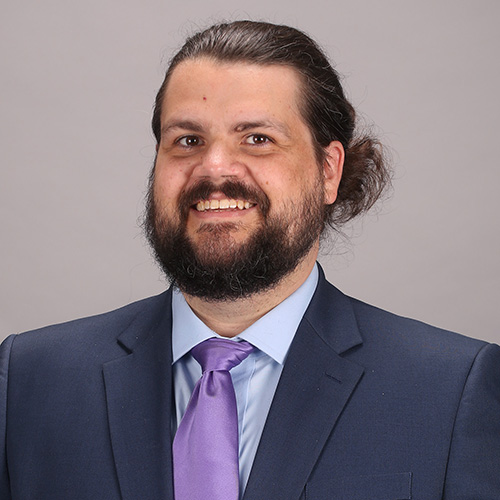 Ryan Kiser, M.D. (Class of 2021)
Ryan Kiser, M.D. (Class of 2021)
It is hard to describe how grateful I am that I was able to complete my neurology residency training at the University of South Alabama. The program thrives upon and is special because of the close-knit congenial and collegial atmosphere between residents and faculty alike. As a resident I was not only exposed to a wide and enriching spectrum of neurologic pathology and care but was additionally afforded the opportunity to participate in several program specific/hospital committees and leadership positions. The USA Department of Neurology program leadership is incredibly responsive to resident feedback and tirelessly works to maintain the optimal training and educational experience for residents of all levels. Altogether, the excellent neurology education/training I received, and experience gained through leadership positions at the University of South Alabama, placed me in excellent position to match in fellowship, pass the ABPN board exam, and begin a career in academic medicine.
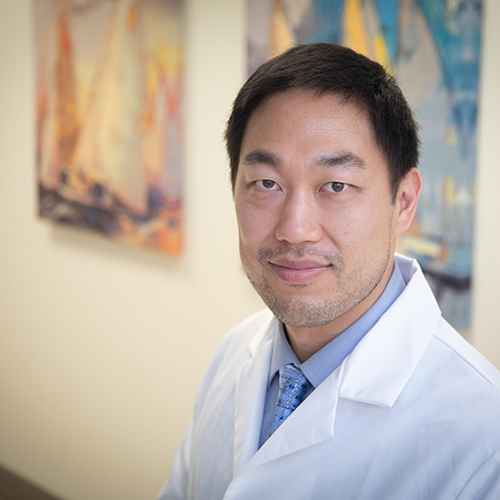 Peter Soh, M.D. (Class of 2021)
Peter Soh, M.D. (Class of 2021)
During my fellowship training, I was traveling on a flight to attend an international headache meeting. About 3 hours into the flight, the attendant requested for a doctor to come to the back of the plane. Immediately, several people got up from their seats. I joined the response and saw an older woman lying in the aisle that was encephalopathic. After vitals were checked and airway maintained, I started evaluating for stroke or seizure. It had been almost a year since working in the inpatient setting, however, the evaluation and management skills learned during residency returned without unfamiliarity. I gathered a clinical history from witnesses, performed a physical exam, and expedited certain clinical data points based on the differential diagnosis. It was a physically tight space with few resources, but we were still able to care for the passenger and help the flight crew decide on next steps for landing. Nonetheless, I felt well-prepared for the situation due to my training at USA. The other point of this story is that the USA neurology department supported my passion in headache which made me competitive for my fellowship application. I also worked on research and writing literature with multiple attendings, including a nationally-renowned neuromuscular specialist, that resulted in presentations, publications, and a quality-improvement project that had a positive effect on patient care. The neurology department also supported time to advocate for patients at meetings like Neurology on the Hill. The clinical training and learning opportunities at USA fostered a well-rounded training experience.
Danielle Isen, M.D. (Class of 2021)
How do I sum up my experience as a neurology resident at USA in just a few words? This is a challenge. This residency program has not only shaped me into a neurologist, but it has made me a better person. I have learned to always be open to learning and self-growth and to be resilient when faced with obstacles. USA offers a unique and exceptional program filled with a lot of one-on-one interaction with the attendings, high-caliber residents, and autonomy in patient care (with appropriate supervision).
I am now a board-certified neurologist, completing my fellowship in Neuro-Ophthalmology at University of Alabama at Birmingham. USA Neurology prepared me exceedingly well for fellowship and my career ahead. I am so grateful to my many attendings and colleagues for supporting me in this rewarding journey!
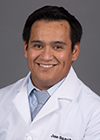 Jose Sanchez, M.D. (Class of 2020)
Jose Sanchez, M.D. (Class of 2020)
Fellow at the University of North Carolina
The education/training experience that I received at the University of South Alabama is an integral part in my career. I was prepared to practice as a clinician in the field of neurology. I was exposed to a variety of subspecialties of which I really enjoyed neuromuscular medicine. I'm currently completing a neuromuscular fellowship at the University of North Carolina.
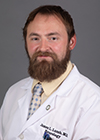 James Lamb, M.D. (Class of 2020)
James Lamb, M.D. (Class of 2020)
Attending Neurologist at North Alabama Medical Center with North Alabama Neuroservices, Florence, AL
I wanted to do neurology since before medical school, and USA offered me the perfect training for what I wanted out of my career. I graduated with the knowledge and confidence to practice neurology in a private setting and to be able to handle anything that walks into the door. I would train here again in a heartbeat! I hope I can give back to the neurological community the way that USA gave to me. Thank you!
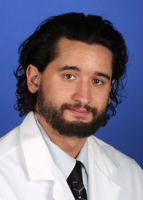 James Rini, M.D., MPH (Class of 2019)
James Rini, M.D., MPH (Class of 2019)
Behavioral Neurology Fellowship (2019-2021) at the Memory and Aging Center, University of California San Francisco, San Francisco, CA
I am currently a second-year Behavioral Neurology Fellow at the Memory and Aging Center of the University of California San Francisco. In addition to learning diagnostic and management techniques for neurodegenerative conditions, I am also building a career as an academic researcher of remote virtual diagnostic evaluations.
My neurology training at the University of South Alabama was invaluable in helping me achieve my goals. At larger programs with multiple subspecialty fellows and enormous faculties, it is easy to get lost in the process. At the University of South Alabama, the close-knit residents and one to one faculty mentorship provide the optimal catalyst for excellent hands-on training. The clinical exposure is excellent. Though a small program, Southern Alabama has a combination of high-density neurological risk factors and limited preventative care, which leads to substantial exposure to both simple and complex conditions throughout your residency. The faculty and staff are exceptionally supportive in terms of research and extra-mural activities, which has facilitated my development as an academic. Furthermore, the relatively laid-back approach of the staff and faculty invites a sense of hospitality and family that I don't believe I would have received in other residency programs. Looking back, I am very thankful for my time at the University of South Alabama.
Where are they now?
- Diana Hengartner, M.D. (2017) - Movement disorder specialist at the Neurodegenerative Disease Center of Northwestern Medicine CDH and affiliated with the Department of Neurology of Feinberg School of Medicine, Northwestern University, Chicago IL
- William Kilgo, M.D. (2017) - Fellowship in Neuroimmunology and Multiple Sclerosis (2017-2018), University of Alabama Birmingham, Birmingham AL
- Jaesung Kim, M.D. (2017) - Attending neurologist, Tulsa OK
- Jordan Combs, M.D. (2016) - Neurohospitalist and faculty, Michigan State College of Human Medicine/Spectrum Health Medical Center, Grand Rapids, MI
- Andrew Manley, M.D. (2016) - Attending neurologist, Thomas Hospital, Fairhope, AL, Coastal Neurological Institute, Mobile, AL
- Matthew McLean, M.D. (2014) - Attending neurologist, Infirmary Hospital, Mobile, AL
- Ethan Gore, M.D. (2014) - Attending neurologist, Pensacola, FL; Fellowship in Cognitive Neurology, Case Western University, Cleveland, OH
- Eric Grover, M.D. (2014) - Faculty, Dartmouth University/Hitchcock Medical Center, Manchester, NH; Fellowship in Epilepsy (2014-2016), Yale University, New Haven CN
- Gloria Simms, M.D. (2013) - Attending neurologist, Inland Hospital/ EMHS. Location: Bangor, ME
- Judy Chun Huang, M.D. (2013) - Neurohospitalist, Memorial Health Systems, Chattanooga, TN
- T. Elliot Foster, M.D. (2012) - Attending neurologist, Coastal Neurological Institute, Mobile, AL
- Gregory Lipscomb, M.D. (2012) - Attending neurologist, Neurology Consultants of Montgomery, Jackson Hospital, Montgomery, AL
- Daniel Dees, M.D. (2011) - Assistant Professor, Department of Neurology, University of South Alabama, Mobile AL; Fellowship in Movement Disorders (2011-2012), Medical College of Georgia, Augusta GA
- Kristina Duffy, M.D. (2011) - Attending neurologist, Niceville, FL
- Shannon Overs, M.D. (2011) - Attending neurologist, Charlotte, NC; Fellowship in Neuroimmunology/Multiple Sclerosis, University of Oregon (2011-2013), Portland OR
- Izabella Koper, M.D. (2010) - Attending neurologist, Mobile VA Medical Center, Mobile AL
- Maher Loutfi, M.D. (2010) - Attending neurologist, Sentara Healthcare, Woodbridge VA; Fellowship in Clinical Neurophysiology, Vanderbilt University (2010-2011)
Prospective Applicants
The Department of Neurology offers four categorical positions, starting July 1, 2023. The internship position is provided for each residency slot.
How to Apply
We accept applications only via the Electronic Residency Application Service (ERAS) from the Association of American Medical Colleges, and all positions are offered through the National Residency Matching Program (NRMP). We do not accept applications via fax, email, or mail. Residents are selected through a holistic review process. We seek applicants that work well in a team setting, honest and trustworthy, and care about patients. We encourage all interested applicants to apply. We will begin accepting applications each year in September. Interviews typically begin in October.
Other Application Information
Required documents submitted through ERAS application include the common application form, CV, three letters of recommendation, MSPE (dean’s letter), copy of MD/DO/MBBS diploma, and official copies of USMLE scores. If you are an osteopathic school graduate, USMLE scores are strongly preferred, although COMLEX scores will be considered. If you are a foreign medical school graduate, you must provide a copy of your current ECFMG certificate and verified transcripts of your grades and graduation. We do not offer positions on a pre-Match basis.
We evaluate applications considering multiple factors, therefore we do not have a minimum USMLE score or passing attempts criteria. Other application information includes:
- Program application deadline: middle of December each year
- We do not have an absolute medical school graduation date.
- U.S. clinical experience is not required but encouraged.
- Applicants requiring visas: please note that we accept only J-1 visas.
Frequently Asked Questions
Is research required?
Research is not required but heavily encouraged. Residents have the opportunity to present at the yearly neurology symposium. Stipends are provided for residents presenting at regional/national/international conferences.
How much personal time do our residents have?
Our program is front loaded in terms of requirements. Second year is most time intensive with increasing free time with each subsequent year. The 80-hour work week is strictly enforced. Residents who exceed hour limit may be pulled from the rotation.
What teaching opportunities are provided to residents?
Didactic and informal teaching opportunities are available to all residents to educate medical students and junior residents. Residents lead the LP simulation lab for the medical student clerkship in addition to presenting their headache and neuroradiology lectures.
How many residents are accepted each year?
Currently, we are offering four categorical positions every year.
How many letters of recommendations are needed?
Three (3) recommendation letters are required. While letters from neurology program directors and neurology department chairs are valued, applicants are encouraged to obtain letters from those who have closely observed them in a clinical setting.
What are the USMLE score requirements?
We do not employ a numerical cutoff during the selection process. All applicants must pass STEP 1 or COMLEX prior to applying. Completion of STEP 2 is required before starting. STEP 3 may be completed during residency.
Do you invite foreign medical graduates?
Foreign medical graduates are invited for interviews. We do not require U.S. experience for international applicants. We only sponsor J1 Visas sponsored by the Educational Commission for Foreign Medical Graduates (ECFMG)
Contact Information
Department of Neurology Residency Program
University of South Alabama
2451 University Hospital Drive
Mastin Building 615
Mobile, AL 36617
Phone: (251) 445-8261
Fax: (251) 445-8249
Leigh Rowell
GME Program Coordinator II
University of South Alabama Department of Neurology
2451 University Hospital Drive, Mastin Building 615
Mobile, AL 36617
(251) 445-8261
clrowell@health.southalabama.edu
William A. Kilgo, M.D.
Assistant Professor, Neurology
Residency Program Director
University of South Alabama Department of Neurology
wkilgo@health.southalabama.edu


